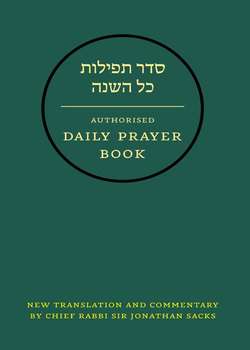Читать книгу Hebrew Daily Prayer Book - Jonathan Sacks - Страница 25
10. KAVANNAH: DIRECTING THE MIND
ОглавлениеPRAYER IS MORE THAN SAYING CERTAIN words in the right order. It needs concentration, attention, engagement of mind and heart, the left and right hemispheres of the brain. Without devotion, said Rabbi Bachya ibn Pakuda, prayer is like a body without a soul. The key Hebrew word here is kavannah meaning mindfulness, intention, focus, direction of the mind. In the context of prayer, it means several different things.
The most basic level is kavannah le-shem mitzvah, which means, having the intention to fulfil a mitzvah. This means that we do what we do, not for social or aesthetic reasons. We pray because we are commanded to pray. In general in Judaism there is a long-standing debate about whether the commandments require kavannah, but certainly prayer does, because it is supremely an act of the mind.
At a second level, kavannah means understanding the words (perush ha-milim). At least the most important sections of prayer require kavannah in this sense. Without it, the words we say would be mere sounds. Understanding the words is, of course, made much easier by the existence of translations and commentaries.
A third level relates to context. How do I understand my situation when I pray? Maimonides states this principle as follows: “The mind should be freed from all extraneous thoughts and the one who prays should realise that he is standing before the Divine presence” These are essential elements of at least the Amidah, the prayer par excellence in which we are conscious of standing before GOD. That is why we take three steps forward at the beginning, and three back at the end – as if we were entering, then leaving, sacred space.
The fourth level of kavannah is not merely saying the words but meaning them, affirming them. Thus, for example, while saying the first paragraph of the Shema, we “accept of the yoke of the kingdom of heaven” – declaring our allegiance to GOD as the supreme authority in our lives. In the second paragraph, we “accept of the yoke of the commandments”. The word Amen means roughly, “I affirm what has been said.” In prayer we put ourselves into the words. We make a commitment. We declare our faith, our trust, our dependency. We mean what we say.
There are, of course, higher reaches of kavannah. Mystics and philosophers throughout the ages developed elaborate meditative practices before and during prayer. But at its simplest, kavannah is the practised harmony of word and thought, body and mind. This is how Judah Halevi described it:
“The tongue agrees with the thought, and does not overstep its bounds, does not speak in prayer in a mere mechanical way as the starling and the parrot, but every word is uttered thoughtfully and attentively. This moment forms the heart and thought of his time, while the other hours represent the way which leads to it. He looks forward to its approach, because while it lasts he resembles the spiritual beings, and is removed from mere animal existence. Those three times of daily prayer are the fruits of his day and night, and the Sabbath is the fruit of the week, because it has been appointed to establish the connection with the Divine spirit and to serve GOD in joy, not in sadness.”
Of course it does not always happen. It is told that on one occasion Rabbi Levi Yitzchak of Berditchev went up to one of his followers after the prayers, held out his hand and said “Welcome home.” “But I haven’t been anywhere”, said the disciple. “Your body hasn’t been anywhere” said the Rebbe, “but your mind has been far away. That is why I wished it, ‘Welcome home’.”
Rabbi Menachem Mendel of Kotzk once asked: “Why does it say in the Shema, ‘These words shall be on your heart'? Should it not say, ‘These words shall be in your heart'? The answer is that the heart is not always open. Therefore we should lay these words on our heart, so that when it opens, they will be there, ready to enter.”
Prayer requires practice. That is implicit in defining prayer as avodah she-be-lev, “service of the heart”. The word avodah, service, also means hard work, labour, strenuous activity. We have to work at prayer. But there are also times when the most inarticulate prayer, said from the heart, pierces the heavens. What matters is seriousness and honesty. “GOD is close to all who call on Him – to all who call on Him in truth.”
